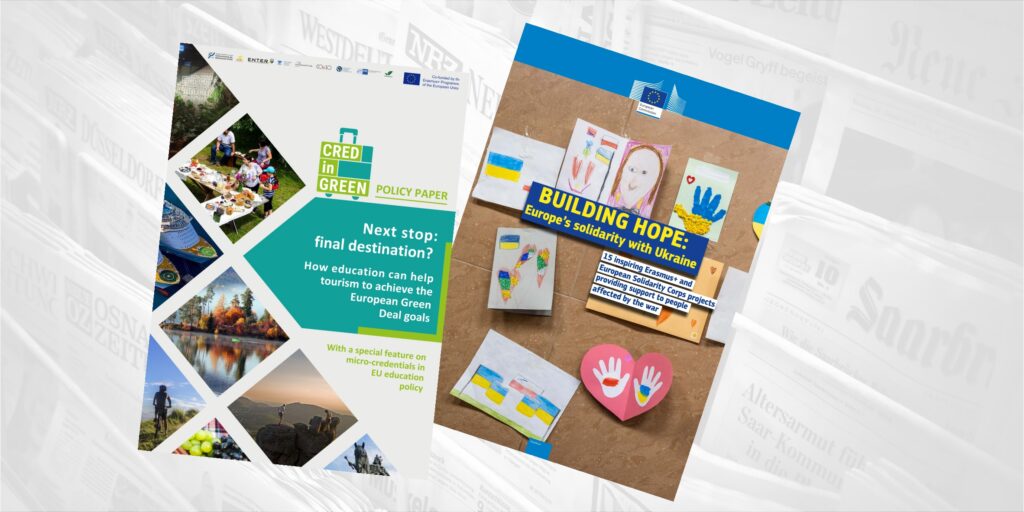
Following the completion of the project SPOT – Sustainable Spatial Planning of Tourism Destinations – we have allocated our savings towards conducting dissemination activities. Consequently, we have showcased our accomplishments at various conferences, including the Congress of Polish Geography, the AESOP 2023 Annual Congress: Integrated Planning in a World of Turbulence, and the 6th International Conference on Events ICE2023: Making Waves in Events. Additionally, we have published and contributed to the following papers and reports:
The SPOT project contributed to another European initiative, CREDinGREEN – Responding to Tourism Market Changes Caused by Covid-19 and the EU Green Deal through Micro-Credential-Certified Upskilling of SME Tourism Managers. Our aim was to explore how sustainable tourism planning and development can support the objectives of the European Green Deal. Within the SPOT project community, we believe that education and learning are pivotal in driving the green transition of Europe, with a particular focus on European tourism destinations. Therefore, the primary objective of our educational activities was to raise awareness among students, educators, and practitioners about the challenges associated with the spatial planning of tourism destinations and to prioritise sustainable development goals.
Colleagues from Mersin University, namely Yasemin Sarıkaya Levent, Ezgi Şahin, and Tolga Levent, recently published a paper titled “The Role of Tourism Planning in Land-Use/Land-Cover Changes in the Kızkalesi Tourism Destination.” Dissemination of the Turkish case within the SPOT project has been targeted by this publication. The goal of this article was to investigate the role of tourism planning processes in the spatial development of tourism destinations. The study conducted in Kızkalesi highlights deficiencies in policy, strategy, and spatial planning frameworks in directing and controlling Land-Use/Land-Cover changes. These deficiencies are not exclusive to Kızkalesi but may be relevant to other rapidly expanding small-scale tourism destinations.
On February 1, 2024, the European Commission unveiled the publication “Building hope: Europe’s solidarity with Ukraine.” Dissemination of 15 impactful Erasmus+ and European Solidarity Corps projects committed to aiding those affected by the war in Ukraine was the goal. We are proud that the SPOT project has been recognised as an exemplary practice. In response to the influx of refugees from Ukraine, the SPOT project, in collaboration with partners Faculty of Geographical Sciences at the University of Lodz, OpenStreetMap Poland, Polish Geographical Society, SoftwareMill, and Lodz.Travel, organised the MapoFaktura 2022 event. The objective was to evaluate the Lodz region’s capacity to temporarily host migrants using tourism facilities. The project empowered future tourism professionals with spatial data analysis and crisis management skills. It tackled geopolitical and socio-economic challenges, taking into account local needs and infrastructure accessibility. The territorial capacity to host migrants in the region of Lodz was thoroughly examined, considering the needs of local populations and the communication accessibility of discussed infrastructure. These remarkable achievements were recently showcased during the GeoNight international initiative.
